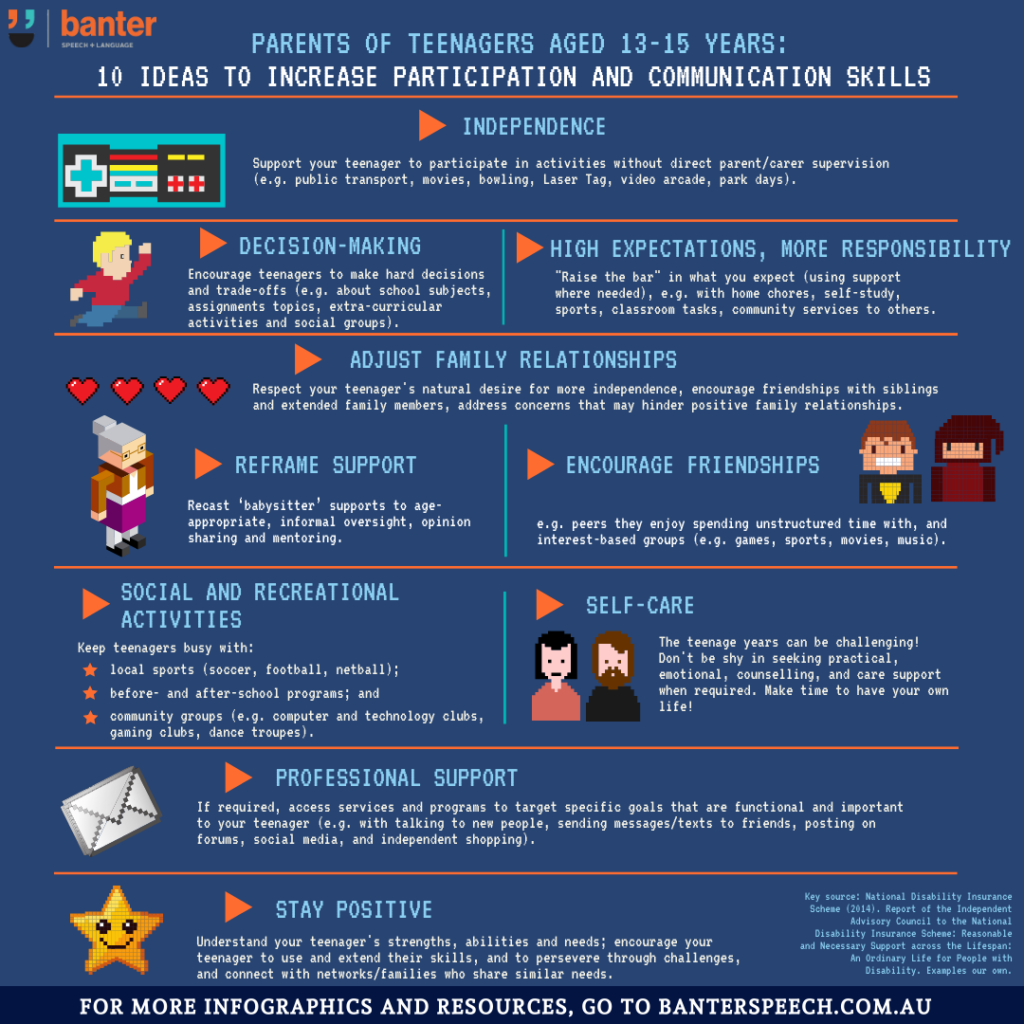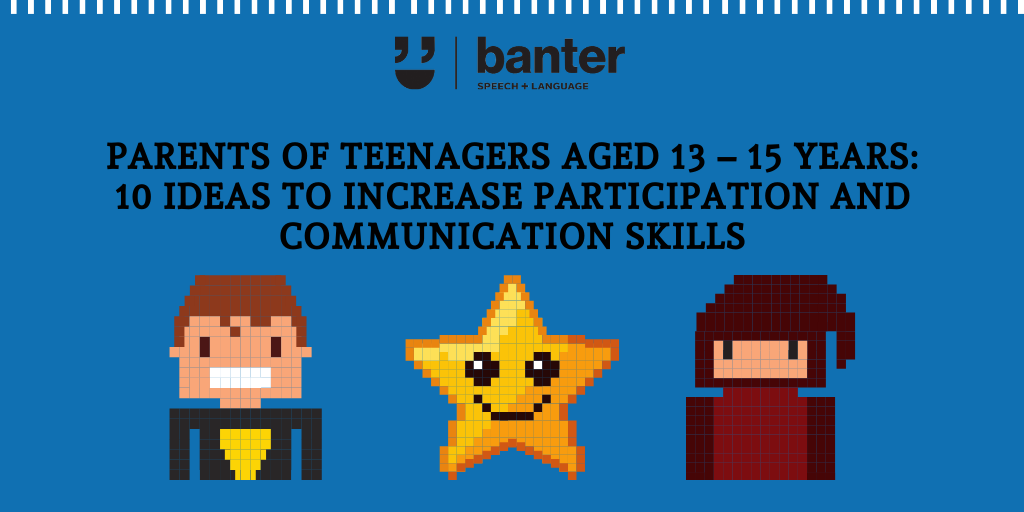Parents of teenagers aged 13 – 15 years: 10 ideas to increase participation and communication skills
- Independence: Support your teenager to participate in activities without direct parents/carers supervision (e.g. public transport, movies, bowling, Laser Tag, video arcade, park days).
- Decision-making: Encourage teenagers to make hard decisions and trade-offs (e.g. about school subjects, assignments topics, extra-curricular activities and social groups).
- High expectations, more responsibility: ‘Raise the bar’ in what you expect (using support where needed), e.g. with home chores, self-study, sports, classroom tasks, community services to others.
- Adjust family relationships: Respect your teenager’s natural desire for more independence, encourage friendships with siblings and extended family members, address concerns that may hinder positive family relationships
- Re-frame support: Recast ‘babysitter’ supports to age-appropriate, informal oversight, opinion sharing and mentoring.
- Encourage friendships: e.g. peers they enjoy spending unstructured time with, and interest-based groups (e.g. games, sports, movies, music).
- Social/recreational activities: Keep teenagers busy with local sports (soccer, football, netball), before- and after-school programs, and community groups (e.g. computer and technology clubs, gaming clubs, dance troupes).
- Professional support: If required, access services and programs to target specific goals that are functional and important to your teenager (e.g. with talking to new people, sending messages/texts to friends, posting on forums, social media, and independent shopping).
- Stay positive: Understand your teenager’s strengths, abilities and needs; encourage your teenager to use and extend their skills, and to persevere through challenges, and connect with networks/families who share similar needs.
- Self-care: The teenage years can be challenging! Don’t be shy in seeking practical, emotional, counselling, and care support when required. Make time to have your own life!

Key source: National Disability Insurance Scheme (2014). Report of the Independent Advisory Council to the National Disability Insurance Scheme: Reasonable and Necessary Support across the Lifespan: An Ordinary Life for People with Disability. Examples our own.
Related infographics:
- Focusing speech therapy on functional outcomes: a refresher
- Not about ‘fixing’: using the ‘F-word Framework’ to support children with communication disorders and their families
- Parents of children aged 0-5 years: 10 practical ideas to increase you child’s participation and communication skills
- Parents of children aged 6-12 years: 10 practical ideas to increase you child’s participation and communication skills
- Parents of teenagers aged 16-18 years: 11 ideas to increase participation and communication skills

Hi there, I’m David Kinnane.
Principal Speech Pathologist, Banter Speech & Language
Our talented team of certified practising speech pathologists provide unhurried, personalised and evidence-based speech pathology care to children and adults in the Inner West of Sydney and beyond, both in our clinic and via telehealth.








